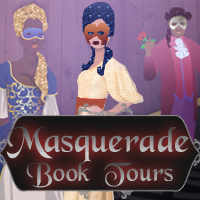Devorah Fox's Blog, page 16
August 10, 2016
Journal of a novel: Aug. 10, 2016. Word count
In a series of posts, I’ll share both Steinbeck’s Journal of a Novel and what I learn from it, and I’ll show you what the writing life is like for me.
In his Feb. 15 Journal of a Novel entry, John Steinbeck has at last decided to commence writing his novel.
This is the last bounce on the board, the last look into the pool. The time has come for the dive.
Again, I’m impressed with the degree of drama that imbued Steinbeck’s perception of himself as a writer and the act of writing.
He muses about “word rate,” i.e. how much writing he’ll get done each work day. Ah, word count. Now here’s a subject with which I am familiar.
In 2010, I participated in my first National Novel Writing Month marathon. NaNoWriMo is an organized effort that challenges writers to write 50,000 words in 30 days. Fifty-thousand words isn’t quite commercial-novel length which is at least 65,000 words. Many novels are 75-85,000 words long and quite a few are 100,00 words long or more. However, if you’ve got 50,000 words invested in a work, you’ll probably go on to finish it at some point.
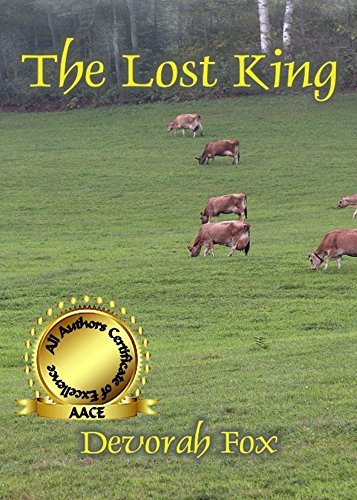 I did. I “won” NaNoWriMo 2010, went on to write more, and The Lost King was the result. Every other book in The Bewildering Adventures of King Bewilliam epic fantasy series got its start as a NaNoWriMo project.
I did. I “won” NaNoWriMo 2010, went on to write more, and The Lost King was the result. Every other book in The Bewildering Adventures of King Bewilliam epic fantasy series got its start as a NaNoWriMo project.
To “win” NaNoWriMo, you strive to write 1667 words—six to eight typed manuscript pages—every November day. Including Saturdays, Sundays, and Thanksgiving Day. If you fall behind, you simply have to catch up on some other day, making for some very long writing sessions.
Several NaNoWriMos later, I have learned that I’m not a fast writer. There have been days when it’s taken me about six hours to get those 1667 words done. And my work isn’t over because then I have to tackle my “day job.”
Steinbeck comments about being reluctant to start. For me, and for many other participants, that’s one of the values of NaNoWriMo. It’s that needed kick in the pants. There’s something about signing up for the marathon, making the pledge to do this, that cements one’s commitment to the project. Plus, if you tell people about it, you won’t want to risk the embarrassment of wimping out. I will brag on myself a little bit. While hundreds of thousands of people around the world start NaNoWriMo (and generate over a billion words in the course of a month), only about 20% reach the finish line. I have reached the 50K word count goal every time.
Will I do NaMoWriMo this year? You betcha. I have more than one project waving its chubby little hand, shouting “Pick me! Pick me!”
August 9, 2016
Journal of a novel: Aug. 9, 2016. The blank page
In a series of posts, I’ll share both Steinbeck’s Journal of a Novel and what I learn from it, and I’ll show you what the writing life is like for me.
Feb. 13 was John Steinbeck’s second day of getting to work on his novel. In a journal entry, he states
my second work day is a bust as far as getting into the writing. I suffer as always from the fear of putting down the first line.
Ah, that intimidating first page. I will say that I don’t find it that daunting, maybe because I tend not to face a blank page but rather a blank screen, the image of a word processing page. Since I have digital tools, it’s easy to write something, anything, and later delete it, replace it with something finer. Since Steinbeck was writing in pencil on notebook paper, what he set down might have had felt more permanent to him. Besides, when I start work, I almost always have an idea of what I want to write.
Maybe Steinbeck simply had a greater sense than I of the occult power of writing, that the setting down of those first words would put in motion something that could not be undone. Perhaps he understood in a way that I don’t how the first line would chart a course from which he would not be able to stray. That must be it. He tells his editor
I write many thousands of words a day and some of them go on paper. And of those which are written down, only a few are ever meant to be seen.
In this same journal entry, Steinbeck talks about finding “stories I did not know about.” That’s happened to me. While looking for something else, I discovered nine chapters of a novel that I didn’t remember writing. Nine chapters!
August 8, 2016
Journal of a novel: August 8, 2106. Mood
John Steinbeck started his journal of a novel on January 29, 1951 . His next journal entry was Feb. 12, and he had yet to start actually writing East of Eden which at this point had only a working title. In this journal entry, he states that “tomorrow” will be his first day of work. Meanwhile he devotes several journal pages to his plans for it.
I have a good feeling about this book now and I hope I can keep it. It is a feeling of real relaxation and rest … I want to be so relaxed that the book will soothe and excite at the same time.
I’ve never given any thought as to what mood I’m in when I write, nor whether my mood has any affect on the person reading what I wrote. I certainly will give this more attention in the future.
I did learn earlier this year that readers find my work comforting. I’ve gotten emails from readers who read my books during a stressful time in their lives. One reader tackled the first book in The Bewildering Adventures of King Bewilliam, The Lost King, while in the hospital and told me that reading something with a “stress-free story line” helped his recovery. For another reader, Book Two, The King’s Ransom, provided “a wonderful escape in the middle of the night when I can’t get a hug.”
I won’t say that’s at all what I had in mind when I wrote those books. I didn’t have anything in mind except to tell a story. Since then, however, I have bugged plenty of people to tell me why they read. “Escape” was often the answer. Even more informative than what they escape from is what, or where, they escape to: comfort.
I wouldn’t say that East of Eden is a “soothing” story. Perhaps at the outset, Steinbeck had different plans for it. Or perhaps the comfort comes not so much from the story itself, but from the act of reading. Maybe any story would do.
August 5, 2016
Journal of a novel: Aug. 5, 2016. Audience
John Steinbeck began his Journal of a Novel on January 29, 1951. In his first entry he tells his editor that he will “start my book addressed to my boys.” (John and Thomas, then young children, lived with Steinbeck’s ex-wife.)
To whom do I “address” my writing? I wondered. I don’t believe there’s any one person, but I do feel as though I am telling a story to an audience. That audience consists of family, friends, the people I connect with on Facebook, through this blog, and through my e-newsletter. They’re in the front rows; I can see their faces. In the back rows are the people who follow me and my writing anonymously. I can’t describe what they look like but I know they’re there. They make their presence felt when I discover that someone bought a copy of one of my books.
Steinbeck’s comment made me curious, as to whether addressing a work to one particular person would affect the writing, and if so, in what way? In the future, I’ll experiment with that.
In the same journal entry, Steinbeck remarks, “I think perhaps it is the only book I have ever written.” Of course, since he already had dozens of titles to his name by this point in his career, this wasn’t precisely true. I’m guessing this is Steinbeck’s way of expressing how different East of Eden was going to be from his other writing, or perhaps that this was going to be his best work. He does state that “This book will be the most difficult of all I have ever attempted.” He sounds almost intimidated by the goal that he’s set for himself, as if he has doubts that he’ll be able to pull this off.
I certainly don’t feel that I have only one book in me, or that some future book will eclipse all the others that I have written. I have enough ideas to keep me writing for years (decades?) to come, and new ideas pop up every day. While I learn something with each new project (and, I’m told, get better every time), I don’t feel the need to go back and revise previous work. It’s what I had to say then. I’m as pleased with my first as I am with my latest.
Like Steinbeck, I did try something different with The Redoubt. I remember wondering if it was going to come out the way I planned, but questioning didn’t stop me from trying, not for a nanosecond. The only way to know if was going to work would be to write it and see how it sounded. I like how it came out. It solved a problem that I had with continuing The Bewildering Adventures of King Bewilliam series, all of which is told from King Bewilliam’s point of view. Other characters had been lobbying for a chance to express themselves, make their voices heard. I didn’t want to switch viewpoints in the middle of a series. Giving each a chance to tell his or her story scratched that itch. They’ve all settled down and gone back to being content with their supporting roles.
Journal of a novel: Aug. 5, 2016
John Steinbeck began his Journal of a Novel on January 29, 1951. In his first entry he tells his editor that he will “start my book addressed to my boys.” (John and Thomas, then young children, lived with Steinbeck’s ex-wife.)
To whom do I “address” my writing? I wondered. I don’t believe there’s any one person, but I do feel as though I am telling a story to an audience. That audience consists of family, friends, the people I connect with on Facebook, through this blog, and through my e-newsletter. They’re in the front rows; I can see their faces. In the back rows are the people who follow me and my writing anonymously. I can’t describe what they look like but I know they’re there. They make their presence felt when I discover that someone bought a copy of one of my books.
Steinbeck’s comment made me curious, as to whether addressing a work to one particular person would affect the writing, and if so, in what way? In the future, I’ll experiment with that.
In the same journal entry, Steinbeck remarks, “I think perhaps it is the only book I have ever written.” Of course, since he already had dozens of titles to his name by this point in his career, this wasn’t precisely true. I’m guessing this is Steinbeck’s way of expressing how different East of Eden was going to be from his other writing, or perhaps that this was going to be his best work. He does state that “This book will be the most difficult of all I have ever attempted.” He sounds almost intimidated by the goal that he’s set for himself, as if he has doubts that he’ll be able to pull this off.
I certainly don’t feel that I have only one book in me, or that some future book will eclipse all the others that I have written. I have enough ideas to keep me writing for years (decades?) to come, and new ideas pop up every day. While I learn something with each new project (and, I’m told, get better every time), I don’t feel the need to go back and revise previous work. It’s what I had to say then. I’m as pleased with my first as I am with my latest.
Like Steinbeck, I did try something different with The Redoubt. I remember wondering if it was going to come out the way I planned, but questioning didn’t stop me from trying, not for a nanosecond. The only way to know if was going to work would be to write it and see how it sounded. I like how it came out. It solved a problem that I had with continuing The Bewildering Adventures of King Bewilliam series, all of which is told from King Bewilliam’s point of view. Other characters had been lobbying for a chance to express themselves, make their voices heard. I didn’t want to switch viewpoints in the middle of a series. Giving each a chance to tell his or her story scratched that itch. They’ve all settled down and gone back to being content with their supporting roles.
August 4, 2016
Journal of a novel
Recently, a writer group member bemoaned being sidelined because of computer problems. I suggested that she write in longhand, which I find myself doing more often than not. That’s surprising, since my penmanship is so bad that sometimes I cannot later decipher it. It also makes double work for me. In order to do almost anything with my writing, after I’m done with pen and paper, I have to keyboard what I wrote.
Nevertheless I find working with pen and paper so satisfying, I’ll invent excuses to do it. On the rare occasion when I don’t have a novel or short story in progress, I’ll write in my journal, or pen a letter to a friend. Curious as to why this is so, I did some research. I read about a study showing that students who wrote by hand produced longer essays, faster, and expressed more ideas than they did when they used a keyboard. Perhaps subconsciously I realize that writing in longhand results in better writing.
In indicating that the particular writing tool used didn’t seem to matter, the article mentioned the Blackwing pencil as if this was something with which I should already be familiar. I wasn’t, so I looked into it.
The Blackwing pencil was introduced in the 1930s by Eberhard Faber and was used by Oscar, Grammy, and Pulitzer Prize winners throughout the 20th century. After it was discontinued in the 1990s, fans began paying as much as $40 per pencil to just to get their hands on one. In 2010, Palomino revived the Blackwing.
One of the award-winning authors who favored the Blackwing was John Steinbeck. The story that mentioned Steinbeck and the Blackwing pencil stated that the man did indeed write his novels in longhand and that he favored pencils over pens. I learned this in a reference to a publication entitled Journal of a Novel. This Journal was a compilation of letters that Steinbeck wrote to his editor and friend and kept in the same notebook as his work on the East of Eden novel. The journal entries were Steinbeck’s way of warming up before tackling the novel.
Steinbeck never did intend for that journal to be seen by anyone but his publisher friend. However, as is often the case in our culture, the assumption is made that there’s a market for everything done by a celebrity, so a year after Steinbeck’s death, his journal was published. I imagine if his grocery lists were found, they’d get published too.
Cynicism aside, I did find myself wondering if there was some wisdom in an award-winning author’s journal that I as a writer would find helpful. Apparently, the general public is also interested in what goes on behind the scenes. We writers are urged to make ourselves available for interviews, video chats, podcasts, evenings with the author, and other opportunities to reveal how books get written.
Therefore, while I’m not claiming to be in the same league as John Steinbeck, why shouldn’t you find my writing life to be as interesting as his? Sure, a lot of it is applied effort, but not all. Some of it is quite mysterious and magical, even for me, much like the chance discovery of Steinbeck’s journal. In future posts, I’ll share both Steinbeck’s Journal of a Novel and what I learn from it, and I’ll show you what the writing life is like for me. I won’t even make you wait until I’m dead.
July 26, 2016
What didn’t happen
I confess I do put a lot of effort into research. At first, I didn’t plan to do any of it. The Lost King was a fantasy tale; I was going to simply make stuff up. However, as I wrote one scene where King Bewilliam takes an item from his pocket, I found myself wondering “Did they have pockets in the Middle Ages?” No, they didn’t. While medieval soldiers had elaborate formidable weapons at their command, they didn’t have pockets. Those, I discovered, were a much later invention. After that episode, though, I couldn’t write a syllable without first checking “What did they eat then?” “What did they wear then?” etc.
Although my current works-in-progress are contemporary thrillers, I still have to conduct research. As much effort as I put into studying the Middle Ages, my current line of research is harder. Both Detour and The Zen Detective are set in the 1990s. I need to know not so much what happened as what didn’t happen, what wasn’t available, particularly with regard to technology.
A homeowner and business executive, I was very much present in the Nineties, but it was long enough ago that I don’t remember it in vivid detail. As I write scenes with characters having a typical day, I have to study the minutiae of my own and make note of ordinary devices that I take for granted. I reach for a cell phone, leave a voice mail message, send an email, post a Tweet without a second thought. However cell phones were not commonplace in the early 1990s and voicemail for consumers was still in its infancy, as was email. Instead, people-on-the-move used pay phones to stay in touch or, for those who were really cool, pagers. Facebook didn’t make the scene until 2004 and Twitter not until 2006. Consumers on the cutting edge of early Nineties technology connected with the Internet via a brand new offering: dial-up.
 I see that dreamy look in your eye. If you were around then, it’s all coming back to you now, right? If you weren’t, you’re trying to imagine how anyone got anything done. For this writer, eliminating what didn’t happen is proving to be harder than determining what did.
I see that dreamy look in your eye. If you were around then, it’s all coming back to you now, right? If you weren’t, you’re trying to imagine how anyone got anything done. For this writer, eliminating what didn’t happen is proving to be harder than determining what did.
Detour and The Zen Detective are now headed into production in all their vintage glory. Look for Detour to launch later this year, The Zen Detective in early 2017.
July 20, 2016
Those were the days
True, the disks weren’t cheap. Each cost about $10 but they could store what was then considered to be a ton of data. Having been on the bleeding edge of technology throughout my career, I got into ZIP media in a big way. Today, I have a king’s ransom tied up in old ZIP disks (see how cleverly I worked in the title of one of my novels?).
Today we have other storage options: CDs and DVDs, inexpensive external hard drives, tiny media sticks that can hold gigabytes of data in a space smaller than my thumb, bricks with terabytes worth of capacity, cloud storage, etc. Before I pitch my extensive collection of old ZIP disks, though, I had to see what’s on them. While I no longer have a computer with a ZIP drive, I was able to get my hands on an external drive with a USB connection.
One by one, I read the drives. Most held complete image backups of CPUs that long ago got e-recycled. I could break into them, but most consist of business files of which I either have another copy or are obsolete.
What made the excavation worth the time, however, were the writings that I found: short stories, poems, early incarnations of novels, and chapters of novels that I don’t remember writing. Some are so old that they were written using WordPerfect. (Remember WP? Frankly, I found it superior to what I’m using now.) Wherever did I find the time to do all this creative writing? I was no less busy then than I am now.
Even more startling is how good my early work is. Early efforts to get it published met with rejection, leaving me to conclude that my writing wasn’t good enough. It so happens that it was plenty good enough. Earlier this year, two stories originally penned in the 1990s were published and well-received by readers and critics.
I also found files for “Fiction Master,” writing software that I don’t remember buying, much less using. Since I did save the exe. file, I may just fire it up one of these days to see what it’s about.
After I sift through the scores (hundreds?) of old Zip disks, I can tackle the boxes of floppies that I’ve kept. Who knows what gems I’ll find? All I’ll need are hours of uncommitted time and a drive that can read ’em.
July 12, 2016
The complete collection
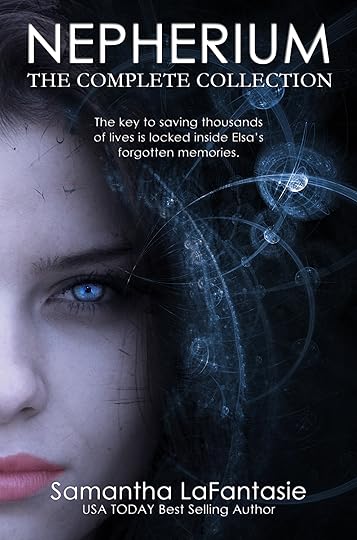 Made to Forget
Made to ForgetThere’s something that lies within my memory. Hidden in the dark. Something that can kill me and those that I love. But I was in an accident, covered in mystery and deception. And my memory…was lost. There are those who want me to remember. I don’t trust them. And those I do trust…are fighting for me to forget.
Elsabetha Ellery wants to get her memory back, even if it kills her.
After waking up in a hospital with no memory, Elsabetha quickly learns those who claim to be her friend are anything but. And those who are her true friends keep themselves unseen.
Stuck with piecing together her broken memories alone, Elsa struggles with having faith in those she trusts and heeding the warnings of the dangers in recovering her memory. Ignoring them, she faces heavy consequences. Ones she doesn’t see until it’s too late, and a life is lost.
Echoes of Memories
Traitor… Liar… That’s what they call me. No one believes me. Not even my team. I know it’s up to me to get the answers. To stop the corruption and unlock my memories. I’ll do anything to get them back. Even if my hands will be covered in blood.
Elsa’s every move is scrutinized. She’s labeled a traitor by those she sought for protection, and kept from her family and team. Regaining memories has been a slow process. Too slow for the Council’s liking, taking matters into their own hands.
The new captain has history with Elsa and operates with a hidden agenda. Even Elsa’s team reacts differently toward her. If only she could unlock her memories. Everything is playing right into Alexander’s hand, even amassing an army with unconventional methods, designed to annihilate the Nepherium—starting with Noah. Elsa will do anything to stop Alexander … even kill.
Forced to Remember
The weight of the world feels heavy on my shoulders. Desperation touches everything. Memories forgotten, truths untold. Humanity is threatened. Their safety granted in exchange for me. But I won’t go without fight.
With strange occurrences taking place in the city, it’s up to Elsa and her team to discover why. But an odd encounter at an abandoned warehouse leaves the team with more questions than answers. Just when the team least expects it, Alexander returns, and he’s not alone or without demands: the world’s safety in exchange for Elsa. They have only one week to decide while the world falls under Alexander’s wrath and his powerful army of followers. Avalon seeks help from every Nepherium that can be spared and hope it will be enough to stop Alexander.
Watch the Trailer
Pre-order now!
Available in paperback and in Kindle format July 31, 2016
ABOUT THE AUTHOR
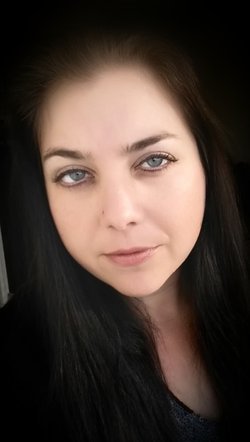 Hailing from Kansas City, Missouri, Samantha LaFantasie spends her free time chasing her three kids and dog named Fido. Writing has always been a passion of hers, forgoing all other desires to devote to this one obsession, even though she often finds herself arguing with her characters through much of the process. She’s primarily a fantasy writer but often feels pulled to genres such as sci-fi, romance, and others.
Hailing from Kansas City, Missouri, Samantha LaFantasie spends her free time chasing her three kids and dog named Fido. Writing has always been a passion of hers, forgoing all other desires to devote to this one obsession, even though she often finds herself arguing with her characters through much of the process. She’s primarily a fantasy writer but often feels pulled to genres such as sci-fi, romance, and others.
Samantha became a bestselling author with the Pandora Boxed Set (which included Made to Forget: Nepherium Novella series–Part One) on both Amazon and USA Today.
Samantha loves to take time to enjoy other activities such as photography and playing her favorite game of all time, Guild Wars 2.
Want more from Samantha? Keep up with her at any of her digital hangouts.
Goodreads
Facebook Fan Page
Author Central
Google+
Wattpad
#GoodThingsReveal

Good things come from unexpected places…
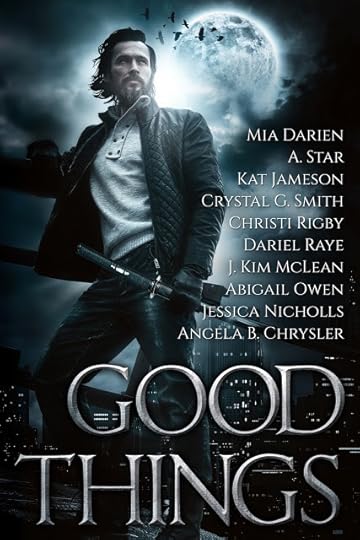
Genre: Urban Fantasy
To Be Released: August 18th, 2016
Good things come from unexpected places…
Magic and mayhem. Vampires and gods. Cops and werewolves. The binding thread of mysticism in the modern world and acts of kindness, small and large, random and focused. Join these ten authors as we travel through their worlds.
All of the author proceeds from the sales of this anthology will go to the Random Acts Organization, sponsoring kindness throughout the world. This is not official Random Acts merchandise, but is a fundraising project under permission from the charity.

Pre-Order Link on Amazon

A. STAR (DIANTHA JONES)

Diantha Jones loves writing fantasy books filled with adventure, romance, and magic. She’s the author of the Oracle of Delphi series, the Mythos series, and the Djinn Order series (as A. Star). When she isn’t writing or working, she is reading or being hypnotized by Netflix. She is a serious night-owl and while everyone else is grinning in the warmth and sunlight, she’s hoping for gloominess and rain. Yeah, she’s weird like that.
Website | Twitter | Facebook | Goodreads | Pinterest
ANGELA B. CHRYSLER

Angela B. Chrysler is a writer, logician, philosopher, and die-hard nerd who studies theology, historical linguistics, music composition, and medieval European history in New York with a dry sense of humor and an unusual sense of sarcasm. She lives in a garden with her family and cats.
In 2014, Ms. Chrysler founded Brain to Books: the marketing promotional engine and online Encyclopedia for authors. A passionate gardener and incurable cat lover, Ms. Chrysler spends her days drinking coffee and writing beside a volume of Edgar Allan Poe who strongly influences her style to this day. When Ms. Chrysler is not writing, she enables her addictions to all things nerdy, and reads everything she can get her hands on no matter the genre. Occasionally, she finds time to mother her three children and debate with her life-long friend who she eventually married. Her writing is often compared to Tad Williams. Her influences are Edgar Allan Poe, The Phantom of the Opera, and Frankenstein.
Website | Amazon | Goodreads | Twitter
J. KIM MCLEAN
Kim’ love of reading came after her mother introduced her to Tolkien and the Hobbit, followed by Lord of the Rings. She also lovingly blames her mother for her love of Science Fiction and Fantasy, thanks to being raised on Star Trek. Kim has always had a vivid imagination, but it wasn’t until she finished with graduate school (where she earned a Master’s of Science in Geology) that she found she could focus her imagination into creating her own characters and stories. Much of her writing has been for various play by email or forum role play universes, though Kim does hope this will be the first of many more stories she writes for publication.
When not writing, Kim can be found snowboarding, hiking, or doting on her furry beasts.
DARIEL RAYE
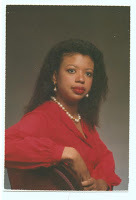
Dariel Raye is an award-winning author of powerful IR/MC (Interracial/Multi-cultural) paranormal romance and dark urban fantasy with alpha male heroes to die for and strong heroines with hearts worth winning. Her stories tell of shifters, vamps, angels, demons, and fey (the Vodouin variety). Dariel is currently writing three series: “Dark Sentinels” (wolf shifters), “Orlosian Warriors” (Vampire-like Nephilim), and “Gateway” (a crossover erotic paranormal suspense with romantic elements).
For more about Dariel, follow her blog or visit her website. She also publishes a new release newsletter. If you enjoyed this book, please post a review on review sites. You can also follow her and contact her on Twitter, Facebook, or Pinterest.
Website | Blog | Newsletter | Twitter | Facebook | Amazon | Goodreads | Google+ | Tumblr
MIA DARIEN

Born a Connecticut Yankee in nobody’s court, Mia Darien grew up to brave snow and talk fast. She started reading when she was three and never looked back, soon frequently falling asleep with a book under her cheek. (Something she still does, though these days it?s her Nook as often as a paperback.)
At eleven, she discovered Night Mare by Piers Anthony and entered the world of grown-up fantasy fiction and it was all over from there. She started writing at fourteen, then met vampires as a teenager and the concept for what would become Adelheid was soon born. Epic fantasy remains her first love, but she enjoys writing whatever stories come to mind in any genre.
Now she loves both writing and helping her indie community with her freelancing. A geek till the end, she enjoys role-play by email games and World of Warcraft when she has the time. Married to her very own Named Man of the North, she lives with him, their mini-tank (also known as their son) and pets, who usually act more childish than the child.
Website | Twitter | Facebook | Goodreads
ABIGAIL OWEN

Award-winning paranormal and contemporary romance author, Abigail Owen was born in Greeley, Colorado, and resides in Austin, Texas, with her husband and two adorable children who are the center of her universe.
Abigail grew up consuming books and exploring the world through her writing. A fourth generation graduate of Texas A&M University, she attempted to find a practical career related to her favorite pastime by earning a degree in English Rhetoric (Technical Writing). However, she swiftly discovered that writing without imagination is not nearly as fun as writing with it.
Website | Facebook | Twitter | Pinterest
CRYSTAL G. SMITH
Born a small town Missourian, Crystal grew up in a time where reading was used for her escape from the everyday worries of a young girl. She then began developing ideas of how she would write a book and what she would do with her characters. Soon, idea came to typewriter and then thankfully computers.
Her love of reading is not centered on one specific genre, but with her writing, she has a tendency to stay with the romance genre. Whether it be modern day romance or paranormal romance, and a lot of steamy, she enjoys writing a story where characters find love in one another no matter how twisted their lives.
She has written several stories for charity to date and continues to write novellas and novels. She is an indie author with a large imagination and even larger heart. She is married with four children, (even though two of them have four legs). She works full-time as a pediatric nurse and when she isn’t acting goofy with family, you can find her reading or writing.
Website | Twitter
KAT JAMESON
Kat Jameson has been having just plain wicked thoughts for about as long as she’s been writing, so it seemed like a very natural progression that the two would end up together. She is a woman who seems perfectly average on the outside, but believes in a great capacity for the power of love and the joy of sex and thinks constraints should be put on neither so long as everyone involved is happy. So that’s what she writes about.
Website | Facebook | Twitter | Goodreads
CHRISTI RIGBY
Christi Rigby lives in Colorado with her husband and her two teen boys, rounding out the group is a bernese mountain dog and an old orange cat that can’t seem to sleep in the morning past the need for some kibble at 5 am, then returns to the bed after it has been vacated but the owners. She has written a number of short stories for publication and is working on her first book to be published. When she is not writing at a keyboard she is always writing in her mind, so to say writing is her real life over the job she holds would be a fair representation. An avid guide along the path to geekdom for her children and friends, she is a fan of comic books, any number of Science Fiction/Fantasy television shows and movies, computer and console gaming, and just about anything Scandinavian or British Isles in nature. One day she hopes that her choice to make writing her life will lead to a visit to the Isle of Man.
Facebook | Twitter
JESSICA NICHOLLS
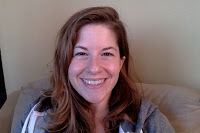
Jessica Nicholls is originally from Northern Illinois. She lived in the Northwest of England for just over ten years, where she studied and had her children. Jessica still lives overseas with her husband and two school age kids. Running, reading and watching films are her favourite hobbies. She loves spirits, passionate love stories, vampires, shape shifters, mythology and almost anything historical. The most important thing for her is for a story to feel real, something to genuinely escape into. Writing the type of stories she would enjoy reading is a passion.
Website | Facebook | Twitter | Amazon

a Rafflecopter giveaway
